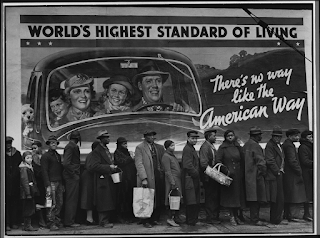Don't get me wrong: I love the liberal media.
The New York Times, The New Yorker, PBS News. I buy subscriptions, read them watch them all the time.
But it's like that aging hippie lady next door who is growing marijuana by the fence and who traps you when you are trying to weed the flower bed, to talk about feeding stray cats and racoons, who she believes would starve without a concerted community effort.
Gotta love her, but oh, plueeze spare me.
And so we have the New York Times giving over 2 full pages of the Sunday Opinion section to Lydia Polgreen, a former New York Times writer, who believes fervently in gender fluidity and the cause of Transgender rights.
 |
| Lydia Polgreen |
And, as is the practice of the New York Times, no answering article is provided.
It should be noted that the New England Journal of Medicine provides a statement in their letters to the editor section, and then a response to that statement as a matter of course.
There is no reason the NYT could not do this, other than hidebound tradition. "We've always done it this way."
So, what did Lydia Polgreen have to say which warranted this oceanic volume of column inches (7 columns spread out over 2 pages, with an illustration--the most ink devoted to a single topic since those huge banner headlines which filled an entire front page with "WAR!" in the 20th century.) This was not an opinion piece so much as a pamphlet.
 |
| Hilary Cass, MD |
What provoked Ms. Polgreen so ardently is the publication of a 388 page report on "gender-affirming care" (aka "transgender medicine") published in April of this year by Hilary Cass, a retired pediatrician (italics mine--but the "retired" is used by Ms. Polgreen for obvious reasons) who had been the head of the British pediatric medical association, but who, Ms. Polgreen avers "had no direct experience with transgender care."
But first, a little background, which Ms. Polgreen does not provide, although she alludes to some parts of it.
Recognizing a Problem
The first thing Ms. Polgreen neglects to mention is the reason the study was commissioned by the British National Health Service: there has been an explosion in patients seeking care at British clinics for gender dysphoria, seeking gender changing therapy. It is difficult to suss out the numbers, but the NHS is particularly sensitive to the cost of therapies, and the Brits get pretty sticky about whether a new therapy is worth the taxpayers' money. So when any disease or clinic starts accounting for more cost, the Brits tend to notice:
According to a study commissioned by NHS England, 10 years ago there were just under 250 referrals, most of them boys, to the Gender Identity Development Service (Gids), run by the Tavistock and Portman NHS foundation trust in London.
Last year, there were more than 5,000, which was twice the number in the previous year. And the largest group, about two-thirds, now consisted of “birth-registered females first presenting in adolescence with gender-related distress”, the report said.
--Professor Google, Source Lost in translation
There could be any number of explanations for the change in these numbers, although in a country of 67 million people, 5,000 patients does not seem like a huge number.
Where did Gender Dysphoria Come From?
But let's go back to see where "transgender clinics" came from: Somewhere around 1966, plastic surgeons at the Johns Hopkins Hospital began developing techniques to transform patients who had been "assigned" the male gender but wanted to become female and to transform females into males, anatomically.
Around this time, Dr. Maria New's pediatric endocrinology department at Cornell reported some curious cases of children who never really felt like girls, and turned out to have some genetic changes which caused profound biochemical changes in the way testosterone and other steroid hormones got made, so their psychological phenomenon had readily apparent biochemical explanations. These patients were born with what looked like female external genitalia but had chromosomes (46 XY) which define male sex/gender.
A little later, Hopkins hired Dr. Paul McHugh (chief of one of Cornell's psychiatric divisions) as the chief of psychiatry and when he arrived in Baltimore, the heads of the transgender medicine enterprise asked him to join the endocrinologists, surgeons, urologists to help run the Transgender Clinic. The first thing McHugh did was to review the data and one thing leapt out at him: 40% of the clinic's patients had either committed suicide or made a very determined effort to commit suicide. McHugh withdrew psychiatry from the transgender clinic, with the withering question: If you had a cardiology clinic promulgating a new procedure, and you found it had a 40% mortality rate, would you not put a halt to this approach until you could be sure this approach is safe?
Shortly thereafter, Hopkins closed its transgender program.
 |
| Paul McHugh |
Abandoning Free Inquiry:
But, for our story, a sidelight to this story has not got enough attention: McHugh found himself the target of repeated attacks, questioning his morality, his professionalism and his very soul. Medical Students at the Johns Hopkins University School of Medicine refused to speak to him. They noted his Catholic faith and accused him of failing to act as a doctor, but instead embracing Catholic teaching over scientific thinking.
McHugh responded: there is an equally plausible hypothesis: Transgender patients may be more like patients with anorexia nervosa than they were like Maria New's patients. No biochemical abnormality had ever been discovered in the transgender clinic patients, but maybe the transgender patients were simply afflicted, as the anorexia nervosa patients, by a "single wrong idea." The anorexia nervosa patient looks at her 80 pound body at five feet seven inches tall and says, "I'm just too fat!"
 |
| A single wrong Idea |
The attacks on McHugh continued and grew until he ultimately retired, and they were the harbinger of the wave of reaction directed at any physician who dared question the correctness of Transgender Clinics. Even at Endocrine Society meetings, any criticism of Transgender Clinics was taken as a political statement, a manifestation of intolerance and hostility toward transgender patients.
The topic of transgender medicine could no longer be broached in anything close to an objective or scientific way.
About 3 years ago, at the Endocrine Society meeting, I attended a session given by some Dutch doctors about their clinic for "Androgen Abuse Syndrome," something we see a fair amount in the US. The patients in this clinic walk in heavily muscled, looking like the Incredible Hulk, asking for testosterone therapy. Of course, they have been using testosterone obtained from "gym rats" and now they want a legal source from an endocrinologist and three weeks before attending the clinic they stop their injections and their testosterone levels fall and they have their ticket to clinic for "low T" (testosterone.) The Dutch treat these folks like patients with anorexia nervosa and sign them up for a "detox" program where they sign contracts not to seek testosterone elsewhere and to taper under supervision. "These men look in the mirror and see a 98 pound weakling," the Dutch doctors noted. From that session I went to the Transgender Clinic session, where the doctor leading it presented a case of a patient they were giving four times the standard dose of testosterone in an effort to stop menstruation. They were giving twice the dose most Androgen Abuse patients were taking when they entered that clinic. I quickly texted the American moderator of the Androgen Abuse session and asked, "How is this Transgender Clinic not guilty of 'androgen abuse?'" He replied, "Well, if it's for gender affirming care, it's not abuse."
Thus is the state of thinking among folks who are supposed to be objective scientists--or thus was the thinking before the Cass report.
That all changed once the Cass paper appeared.
Asking the Uncomfortable Questions:
The big issues remained:
1/ The suicide rate: always disputed and deconstructed, but most clinic heads agreed the suicide (or serious attempt) rate remains stubbornly around 40%. This is taken as an indicator not of a failure of therapy, but of the stress society puts on transgender patients.
2/ The risks of using prodigious doses of testosterone for some patients, sometimes up to 8 times the standard doses.
3/ The difficulty in assessing what success is. Polgreen says the measure of success in the Cass paper is whether patients can enter a life which society deems a success--satisfying sex, employment, good citizenship. Whatever measure you use, it has to be, necessarily, the ultimate satisfaction, the "happiness" of the patient. There is no lab test you can order to show success.
4/ "Transgender regret"--Cass's report suggests many if not most transgender clinic patients who wanted to go female to male go back to wanting to be females after some years. The Dutch found a relatively smaller proportion expressing regret at their decisions to "transition," although the Dutch refuse to allow patients to transition until after they are 18, and will not allow drivers' licenses to be changed to the opposite sex unless males have been castrated.
Polgreen calls the Cass report a "powerful piece of ammunition in American reactionaries' war on trans young people." She says Cass's attempts to find a cause for gender dysphoria render it a "strange document." Polgreen says, "What I have come to realize is that this report, for all its claims of impartiality, is fundamentally a subjective, political document."
What has flummoxed Polgreen, is the sympathy expressed for transgender patients throughout the report, which is no screed. Cass and her colleagues clearly want the best for these folks, who, after all, are suffering. She cannot simply accuse Cass of the subterranean prejudice they laid on McHugh.
Polgreen spins off into the usual politics herself: "For years, doctors belittled the suffering of people, especially women, with unexplained pain, fatigue or brain fog...For much of its history this care was withheld or offered with the kind of contempt you'd expect for people who have been treated as pariahs for their failure to conform to society's gender expectations...a dark and cruel history."
Answering Cass's observation that we do not have longterm studies to assess the efficacy and/or desirability of treatment, Polgreen shrugs this off: There are many areas of pediatric medicine where treatment has proceeded with very limited evidence base for long-term consequences, like neonatal intensive care and, more recently, new weight-loss medicines prescribed for obese children."
Of course, these are two very bad examples, as it was prima facia obvious pediatric NICU's would be advantageous, and you didn't need studies to know that; and the risks of GLP1 agonists for weight loss are clearly safer and as effective as bariatric surgery, the only alternative.
Polgreen quotes "a group of scholars and clinicians including to Yale professors" as saying "pediatric care would all but cease if physicians denied treatments for which the evidence base is imperfect."
This is, of course, abducto ad absurdum. Nobody, including Cass, demands perfect evidence.
Polgreen quotes a patient as saying, "It just felt like they were finding any reason to 'disprove' me being trans in my first appointment." Well, duh! Of course the doctors wanted to explore the alternative before accepting the patient's own diagnosis and rushing forth into treatment.
"The report is shot through with language like that. It seems to encourage everything that can be done to preserve the possibility that a child might turn out not to be transgender and avoids anything that might too enthusiastically affirm a child's sense of themselves."
Well, yes, when you are talking about cutting off a person's testicles and penis and creating a new vaginal vault surgically, or doing bilateral mastectomies, yes, you might want to be sure there will be no regrets later, after you have cross that Rubicon, especially knowing there's 40% chance of that patient jumping off a roof five years later.
She ends with the appeal to the right to the doctor/patient relationship: "In a free society, we agree that these are private matters, decided by individual and their families with the support of doctors...We invite politicians and judges into them at great peril to our freedom."
The problem is Transgender Clinics are big money. They can be cash cows for institutions by the time you add up all the endocrine/psychiatry/urologic surgery/ breast surgery consults. That sacred "doctor/patient" relationship may be tinged with the desire to generate dollars for the institution. One case presented at Endocrine Society was of a patient who had transitioned from male to female, but still had his penis and testes intact and his female lesbian partner, who wanted IVF using his sperm and her egg at a cost we can only imagine, when, in fact, for no cost, a standard coital episode might accomplish the same end, without the taxpayer paying for it.
And in the United Kingdom, the "right" to this expensive therapy comes under government scrutiny because that NHS is under great economic pressure already.
Dr. Cass's report has, if nothing else, allowed doctors the space to say, "Let's measure twice and cut once," without being Paul McHugh'ed and hounded from the conference room.
What the Cass report has done, which citizen Polgreen so decries is insist on rigorous evaluation, to raise questions about treatment programs which should have been asked all along, but which were excluded on ideological grounds, which turned medical practice into a branch of politics and political correctness.








































